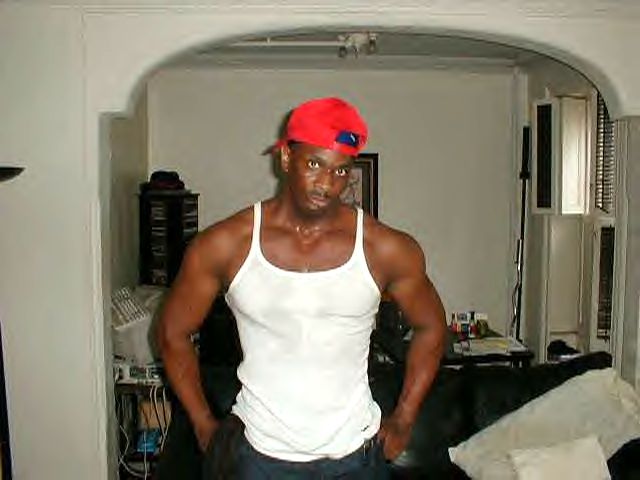She Got Good Hurr’
Reading a well-written novel is like sex.
First, the thrill of discovering the book on the shelves. The quick read on the train ride home is like foreplay, an appetizer for things to come. And once you’re home, you devour the book with all the intensity of intercourse—finding a comfortable position, bringing out all the “toys” (television, iPod, music, etc.). The feeling of completion is exhilarating. Not as intense as orgasm, but definitely as satisfying.

I just finished Benilde Little’s Good Hair, and this is what I experienced. Even though I’ve read her novel twice before, I wanted to re-taste her words, her feelings, her simplicity.
Benilde has written three books—Good Hair, The Itch, Acting Out—and each one deals with the angst of the black upper middle class. You know the them: Daddy is on the fast track at Goldman Sachs. Mommy is a stay-at-home attorney, raising Courtney and Brooke with their playgroups and Jack and Jill activities. She writes about isolation, fear, staying "black" and dealing with whites on the j-o-b.
Her words are honest, searing and emotional. The dialogue is structured, and the characters studied, deliberate. The protagonist of Good Hair is Alice, a wanna-be BAP who has traded on her working class roots.
Basically, they were all Cosby girls.
Her writing is personal, and I have complete identification with the situations. Growing up po', going to a top school, trying to fit in with the trust fund kids, the whole career thing (Alice is a newspaper reporter).
I guess I'm odd. I'm one of those dark-skinned brothaz who is not caught up on the whole dark/light thing. I never wanted to be lighter, even though most of my family is. I can see tghe whole division between light and dark when I'm home in Chicago, and of course in the south. Out east, it doesn't play out so well. Definitely, being dark skinned has its advantages in NYC. In DC, ahh, maybe a different story.
Benilde comments on this in the book. Alice meets a light-bright bourgeois doctor, and he invites her to attend a socity wedding in the District.
I'm on the fence about her sophmore effort, The Itch. The characters have more backstory, and are broadly drawned, but for some reason ... the orgasm wasn't so strong. She's written a third, Acting Out, which did absolutely zero for me. A blurb in the trades said that her fourth novel, Who Does She Think She Is, will be on the shelves in June.
First, the thrill of discovering the book on the shelves. The quick read on the train ride home is like foreplay, an appetizer for things to come. And once you’re home, you devour the book with all the intensity of intercourse—finding a comfortable position, bringing out all the “toys” (television, iPod, music, etc.). The feeling of completion is exhilarating. Not as intense as orgasm, but definitely as satisfying.

I just finished Benilde Little’s Good Hair, and this is what I experienced. Even though I’ve read her novel twice before, I wanted to re-taste her words, her feelings, her simplicity.
Benilde has written three books—Good Hair, The Itch, Acting Out—and each one deals with the angst of the black upper middle class. You know the them: Daddy is on the fast track at Goldman Sachs. Mommy is a stay-at-home attorney, raising Courtney and Brooke with their playgroups and Jack and Jill activities. She writes about isolation, fear, staying "black" and dealing with whites on the j-o-b.
Her words are honest, searing and emotional. The dialogue is structured, and the characters studied, deliberate. The protagonist of Good Hair is Alice, a wanna-be BAP who has traded on her working class roots.
I had been living in Manhattan for five years, hanging out with a bunch of women who, in addition to sharing an alma matter, shared a 1950-ish goal of "marrying well." It was actually a phrase that we used to describe what we all wanted: a black Ward Cleaver, who made a million dollars a year and dressed in Armani. What these prized stallions would want in return from their wives-to-be seemed doable at the time: constant stroking, a happy disposition, and great
hair--which meant long but requiring little artificial maintenance.
Basically, they were all Cosby girls.
Her writing is personal, and I have complete identification with the situations. Growing up po', going to a top school, trying to fit in with the trust fund kids, the whole career thing (Alice is a newspaper reporter).
I guess I'm odd. I'm one of those dark-skinned brothaz who is not caught up on the whole dark/light thing. I never wanted to be lighter, even though most of my family is. I can see tghe whole division between light and dark when I'm home in Chicago, and of course in the south. Out east, it doesn't play out so well. Definitely, being dark skinned has its advantages in NYC. In DC, ahh, maybe a different story.
Benilde comments on this in the book. Alice meets a light-bright bourgeois doctor, and he invites her to attend a socity wedding in the District.
I looked around the courtyard and there seemed to be a thousand light-skinned men with light brown wavy hair and blue or green eyes, escorting women who looked like their sisters, drinking Cooks' as if it were water, and debating whether Martha's Vineyard was better than Highland Beach.
I'm on the fence about her sophmore effort, The Itch. The characters have more backstory, and are broadly drawned, but for some reason ... the orgasm wasn't so strong. She's written a third, Acting Out, which did absolutely zero for me. A blurb in the trades said that her fourth novel, Who Does She Think She Is, will be on the shelves in June.



